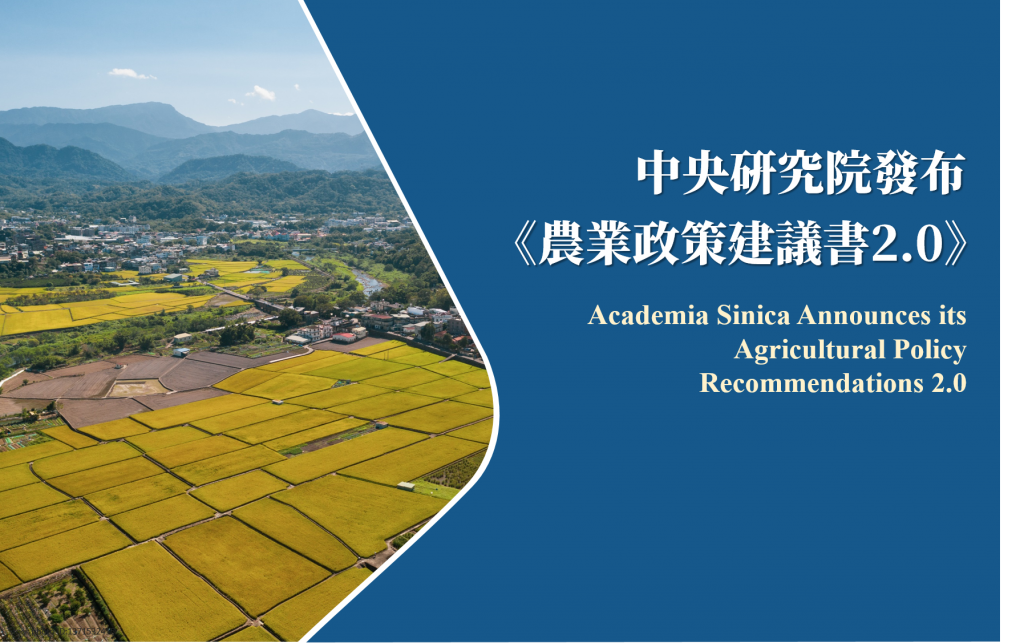Taiwan was once an agricultural-based country. However, over time, agriculture has faced challenges such as an aging workforce, lack of small farm development, increased global competition, and climate change. To explore Taiwan’s agricultural problems and propose policy recommendations, Academia Sinica released on March 16 its white paper, Agricultural Policy Recommendations 2.0. Building on the 2013 Agricultural Policy and Technology Research Recommendations, Policy Recommendations 2.0 reassessed several issues, including land use, agricultural food industries, agricultural technology, ecological protection, education, healthcare, finance, and workforce. It seeks to revitalize the existing policy framework with innovative proposals to build a sustainable foundation for the development of rural areas.

According to the white paper, Taiwan’s agricultural development faces long-term structural difficulties. After rethinking fundamental policy issues, eight major policies are proposed:
- Establish an Agricultural Basic Law to clarify the legal status and attributes of “agriculture,” “rural areas,” and “farmers” to lay out future development goals.
- The spirit of the Spatial Planning Act should be implemented through just regulation of high-quality farmland and the prevention of farmland fragmentation.
- Policy reforms should go beyond single agricultural units. Agricultural academies should be established for a comprehensive workforce revitalization.
- Promote community-based network development models to cultivate talent for rural development.
- Revise regulations based on emerging issues and technologies, such as carbon sinks and gene editing. To create a competitive research environment, provide regulatory definitions and regulations to facilitate technology development and protect intellectual property rights.
- Establish an agricultural expert system to plan and adjust strategies for agricultural technology research and regulation revisions, with national food security as the primary task, focusing on climate change, epidemics, and war.
- Enhance agricultural data collection by connecting various agricultural technology databases to promote agricultural policy planning, technology research, and proper use of natural resources.
- Promote basic agricultural science education with the Food and Agricultural Education Act to raise awareness and knowledge of agriculture to reduce food and resource waste and help facilitate zero-carbon agriculture.
The recommendations committee consists of members from different professional backgrounds, including the humanities, social sciences, and agricultural biotechnology. Based on the previous Agricultural Policy and Technology Research Recommendations, the group has spent years planning, discussing, and visiting local experts and practitioners in the agricultural industry. With a bottom-up approach, these policy recommendations start from the living aspects of the current rural areas in Taiwan, reviews the impact of past policies, and discusses specific problems rural areas face. From a scientific viewpoint, the production and ecological aspects were included to depict a more comprehensive vision of rural development.
In constructing committees to deliberate key scientific and technological issues, as well as their social impacts, Academicians and experts in related fields are selected to provide input. The findings are published as policy recommendations for the government. From an academic perspective, innovative and disruptive ideas were provided to assist government policy-making and strategy implementation.
Please click here to read the full version of Agricultural Policy Recommendations 2.0.
